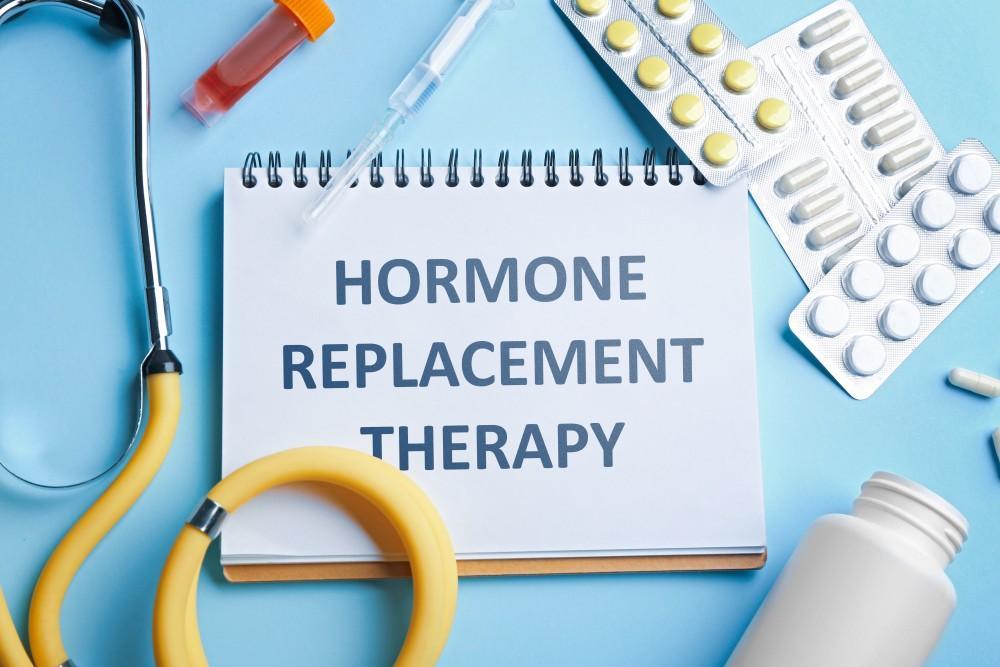Hormone replacement therapy (HRT) has generated much attention and discussion due to its help in treating menopausal symptoms. This article examines HRT’s pros and drawbacks, highlighting its advantages and hazards.
Table of Contents
Understanding Hormone Replacement Therapy
It is the practice of administration of hormones to people, typically women, to treat symptoms brought on by hormonal imbalances. Menopause or other medical issues may cause these abnormalities. Replacement of estrogen and progesterone in women is the main goal of HRT.
The Pros of Hormone Replacement Therapy
Symptom Relief
The most distressing menopause symptoms, including as hot flashes, nocturnal sweats, and vaginal dryness, have been greatly alleviated by HRT. The quality of life for women who experience these discomforts can be considerably improved.
Bone Health
Estrogen is essential for preserving bone density. HRT can help postmenopausal women avoid osteoporosis and fractures by maintaining bone mass and strength.
Cardiovascular Health
According to several studies, HRT may benefit cardiovascular health by lowering cholesterol levels and heart disease risk in some women.
Cognitive Function
In postmenopausal women, HRT has demonstrated potential advantages in maintaining cognitive function and lowering the risk of diseases like Alzheimer’s.
The Cons of Hormone Replacement Therapy
Increased Risk of Blood Clots
HRT may make blood clots more likely, which is problematic for those with a history of clotting disorders or other risk factors. If you have a medical history of blood clotting, you should avoid it.
Breast Cancer Risk
A modest increased risk of breast cancer has been linked to HRT use, particularly long-term use. Women thinking about HRT should carefully evaluate this risk with their medical professionals.
Endometrial Cancer
Estrogen therapy alone (without progesterone) can raise the risk of endometrial cancer for females with an intact uterus. Progestin and estrogen together can lessen this risk.
Cardiovascular Risks
While some studies point to potential cardiovascular advantages, others have pointed to potential drawbacks, such as a higher risk of stroke, particularly in older women.
Individual Variability
There is no one-size-fits-all treatment like HRT. Depending on an individual’s health, age, and other characteristics, its efficacy and hazards can differ dramatically. When considering HRT, personalised medical guidance is essential.
Alternatives to Hormone Replacement Therapy
Lifestyle Modifications
Many women can control menopausal symptoms by making lifestyle adjustments like eating well, exercising frequently, and learning stress management strategies.
Non-Hormonal Medications
For certain symptoms like hot flashes, non-hormonal medicines are available. These alternatives can be discussed with a healthcare professional.
Bioidentical Hormones
Every woman is different and requires unique treatment tailored to their symptoms and conditions. That is why some women choose bioidentical hormones, which are made to match each person’s hormone levels more closely. However, there is ongoing discussion among medical professionals about their efficacy and safety.
The Importance of Individualised Care
It’s important to remember that each patient’s condition differs while considering HRT. Age, general health, medical history, and personal preferences all greatly impact whether HRT is the best option. To customise treatment regimens to the needs of the person and reduce potential hazards, a thorough examination by a gynaecologist in Dubai is essential.
Monitoring and Regular Follow-ups
Regular monitoring and follow-ups with medical professionals are crucial for people on HRT. The success of the therapy may be evaluated, any adverse effects can be managed, and treatment plans can be changed as necessary with regular checkups. Through this continual partnership, it is made sure that the patient’s health is given priority throughout the HRT process.
Risks and Benefits Over Time
Understanding that HRT’s hazards and advantages could change over time is critical. For instance, the benefits of symptom relief and better bone health frequently manifest fast, whereas long-term factors like the risk of breast cancer may take years to manifest. Periodically, patients and their gynaecologists in Dubai must reassess the advantages and potential hazards.
Shared Decision-Making
In the field of gynaecology, shared decision-making is a useful strategy. Patients should actively participate in decision-making by discussing their worries, preferences, and expectations with their healthcare providers. By working together, it is possible to ensure that the selected treatment option will support the patient’s values and goals.
Alternative Therapies
If someone has specific HRT contraindications or is unsure about HRT, they should look at alternative therapies. Menopausal symptoms and other hormonal abnormalities may be treated with natural treatments, dietary changes, and non-hormonal drugs. To determine the suitability of these choices, talk to an Dubai urologist.
Hormone Replacement Therapy is a complicated option for those with hormonal abnormalities because it has both benefits and drawbacks. Patients should carefully consider the benefits and drawbacks of HRT by having informative conversations with an urologist in Dubai. When deciding whether to use hormone replacement therapy in urology, obstetrics, and gynaecology, it is essential to understand personal health risks and preferences.












